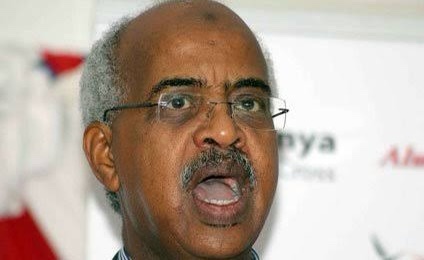Kenya is running empty blood banks, according to an advisory team formed last week to oversee the supply and utilisation of blood and blood products in the country.
The team appointed by Health Cabinet Secretary Mutahi Kagwe said there is no single unit of blood in the country’s major reserves such as Nairobi and Mombasa, a situation reflected in other facilities run by the Kenya National Blood Transfusion Service (KNBTS).
The chairman of the team, Abbas Gullet, told the National Assembly Health Committee that the KNBTS is in a state of rot, plagued by years of mismanagement, staff apathy and limited resources.“The staff are demoralised, equipment has totally collapsed.
When we were there last Wednesday, we were told that you could not get even a single unit of blood,” Mr Gullet told the committee chaired by Murang’a Woman Rep Sabina Chege. “As Kenyans it was quite shocking what we saw and it means we have a lot of work to be done…the fact of the matter is that the NBTS is facing a huge challenge and if not addressed immediately then we are in serious problems,” he said.The multi-disciplinary team was giving its views on the National Blood Transfusion Bill 2020 that seeks to cure perennial blood shortage in the country.
Other members of the advisory team are Dr Kibet Peter Shikuku, Dr Elizabeth Wala, Bharat Thakrar, Dr Patricia Murugami, Prof Bitange Ndemo and Joe Wang’endo. Charles Rombo, Kiprono Chepkok and Dr Thuranira Kaugiria are the joint secretaries.“When the committee visited the centres, we saw that there is not a single unit of blood. If any other emergency happens that needs blood, we are not in a position to respond,” said Ms Wang’endo.
Last year, Kenya collected 164,000 units of blood against a target of 500,000 units. This is only a third of the required amount.The proposed legislation also seeks to cure loopholes that have turned the once flourishing blood transfusion service into a lucrative business targeting rich patients, as the majority poor die for lack of blood. It will also develop and coordinate the implementation of policies and standards relevant to ensuring blood safety.
In recent years, there have emerged reports of illegal export of blood to neighbouring countries, supported by a thriving black market run by well-connected individuals.
For example, in October last year, a health worker in Kisumu was convicted for receiving a Sh28,000 bribe to arrange a blood transfusion for a patient.“Any person who collects, stores, issues, distributes or otherwise trades in blood or blood products in contravention of the provisions of this Act commits an offence and shall be liable, upon conviction, to a fine not exceeding one million shillings or imprisonment for a term not exceeding three years, or to both,” states the Bill, published on March 30.
If the bill becomes law, county governments will be required to work closely with the blood transfusion service to enure compliance with safety standards.
There's no story that cannot be told. We cover the stories that others don't want to be told, we bring you all the news you need. If you have tips, exposes or any story you need to be told bluntly and all queries write to us [email protected] also find us on Telegram

